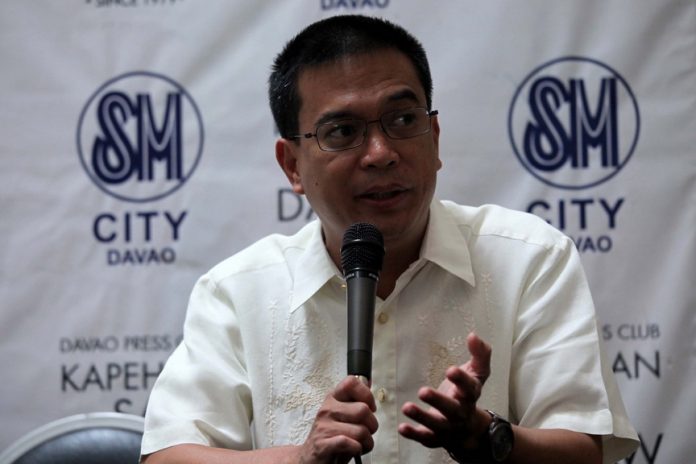
THE DEPARTMENT OF TOURISM (DOT) and certain local government units led by Davao City will transform several tribal villages into eco-tourism destinations.
This was outlined by Tourism Region 11 Director Roberto “Robbie” Alabado III during last Monday’s Kapehan sa Dabaw media forum at the SM Davao annex at the Ecoland.
Alabado said that the Davao City government has already made initial moves in this direction with City Tourism Operations chief Generose D. Tecson holding consultations with tribal leaders in the city.
In those consultation meetings, Tecson informed the tribal chieftains that planning and actually building the eco-tourism villages, including indicating the possible financial requirements or budget, will be their responsibility.
Regional Director Alabado told reporters that DOT has budget for capacity building through this community-based eco-tourism, tourists are not only going to see the wonders of Davao Region but also, to experience the indigenous people’s way of Life.
“We call it the CBET (Community-Based Eco-Tourism). In this program, the tourists will be staying in their (indigenous peoples) houses, like a guest of the family. They will be eating with the family, going around, telling stories with the family. That is the experience we would like the tourist to have,” Alabado said during the Kapehan sa Dabaw.
Director Alabado further said that the DOT has a budget for the training of members of the indigenous peoples (IP) who will be direct and indirect participants in the program.
“Partnership with our IPs is a must because government would like to introduce the eco-tourism concept in as many lumad areas so the IPs can participate in the gains to be derived from a vibrant tourism industry, “ he said.
“However, it has to be more on the cultural aspect of our communities with an eco-tourism side of protecting nature, introducing our tourist to waterfalls, birds, and animals and to the flora and fauna of the community,” the DOT official said.
Aside from talking with the LGUs, Alabado’s office is collaborating with the Department of Enviroment and Natural Resources in laying the ground works of the eco-tourism concept with the people in the targeted communities. The DENR is tasked with determining the feasibility of the potential eco-tourism sites.
DOT 11 initially targets to have the CBET (community-based eco-tourism) program adopted in tribal communities in Davao City, in Davao Oriental, Davao del Norte, Island Garden City of Samal and in Davao Occidental.






